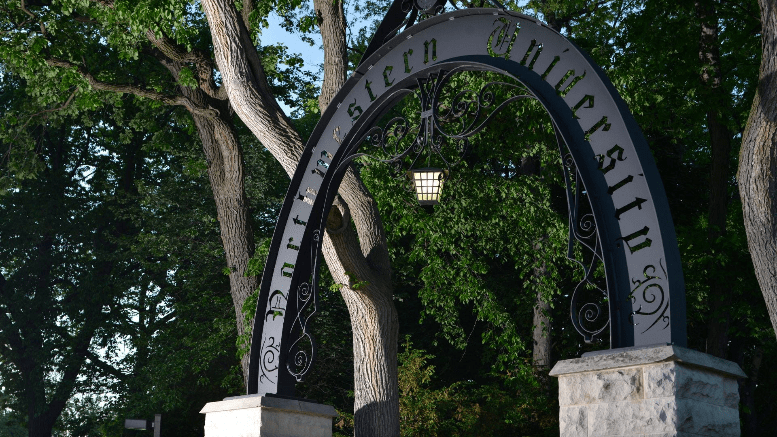Weinberg College community members recently were in the media, sharing their expertise. View the articles below.
Long before movies and screens, Chicago went nuts for something called cycloramas
Chicago Tribune 10/19
The Chicago History Museum cyclorama is a small stunner and is accompanied by a lively and informative essay by Professor Carl Smith, a Northwestern University professor emeritus and author of many books about our history. Especially notable is his most recent, 2020′s “Chicago’s Great Fire: The Destruction and Resurrection of an Iconic American City” (Atlantic Monthly Press), the best book written about the fire.
Opinion: How Is ‘Dune’ So Prescient About Climate Change? Thank This Native American Tribe.
The New York Times 10/23
Daniel Immerwahr is a professor of history at Northwestern and the author of “How to Hide an Empire: A History of the Greater United States.”
The supply-chain debacle that was coming
Gulf Times 10/18
So, how should policymakers think about this lack of system resilience, and what can be done to counter it? Professor Benjamin Golub has shown that queuing theory offers insights into how a small change in a well-functioning system (such as cutting two supermarket checkout lanes down to one) can lead to huge increases in wait times. Conversely, introducing a little slack into a system adds a lot of resilience.
Blanchard’s Fire Shut Up in My Bones: A Boy of Peculiar Grace
WNYC Studios 10/13
Professor E. Patrick Johnson is an artist, writer, and professor of Performance Studies and African American Studies at Northwestern, where he is also the Dean of the School of Communication. He is the author and editor of several award-winning books, including Sweet Tea: Black Gay Men of the South.
His research for the book included dozens of interviews with men who were born, raised, and still live in the South, and he later adapted it into a staged-reading, Pouring Tea, as well as a full-length play and a documentary. He has received multiple awards both for his scholarship and his stage work.
Colin Powell’s legacy, defined by two very different wars in Iraq
NPR 10/18
Ian Hurd, a political science professor at Northwestern University, said Powell realized the military was not a “straightforward tool to fix the world along lines desired by US presidents.”
“He saw the dilemmas, blowback and contradictions of American foreign policy,” Hurd said.
Poll: Majority of Unvaccinated Americans Are Concerned Enough About COVID-19 to Wear Masks
U.S. News 10/21
Previous research has suggested that unvaccinated individuals are on average less likely to wear masks, according to the COVID States Project, the collaborative effort from researchers like Professor James Druckman at Northeastern University, as well as researchers at Harvard University, Rutgers University, and Northwestern University noted.
Rise in Pandemic Divorce Sounds Alarm to Address Gender Inequities at Home
Ms. Magazine 10/12
“I was just one of thousands of women who experienced the end of a relationship during the pandemic. I closed the computer and went back to check in on my son’s remote learning, joining multitudes of women doing the same with their children,” writes Professor Jessica Winegar.
90-minute nap can improve motor skills and memory
WGNTV 10/20
Researchers like Professor Ken Paller at Northwestern University asked groups of people to perform challenging tasks involving a video game. They found those who took a 90-minute nap were able to perform the cursor motions required for the game better than those who did not nap. Researchers hope the discovery could lead to motor skill improvements for people who have suffered strokes or have other neurological dysfunction.
Bodies are Cancelled. Thanks, Instagram
Wired 10/10
Once you’ve learned to see your body as an object, “you can’t turn that off,” says Renee Engeln, a psychology professor at Northwestern University and the founder of its Body & Media Lab. “You can only walk away.”
Next Stage of Cryptocurrencies
Gulf Times 10/10
Professor Robert Gordon questions whether the impact of more recent technological innovations will be as far-reaching as that of previous breakthroughs. Will smartphones prove to be as important as electricity? Will e-commerce be as transformative as steam power? Can the Internet’s impact compare to that of radio and the telegraph?

